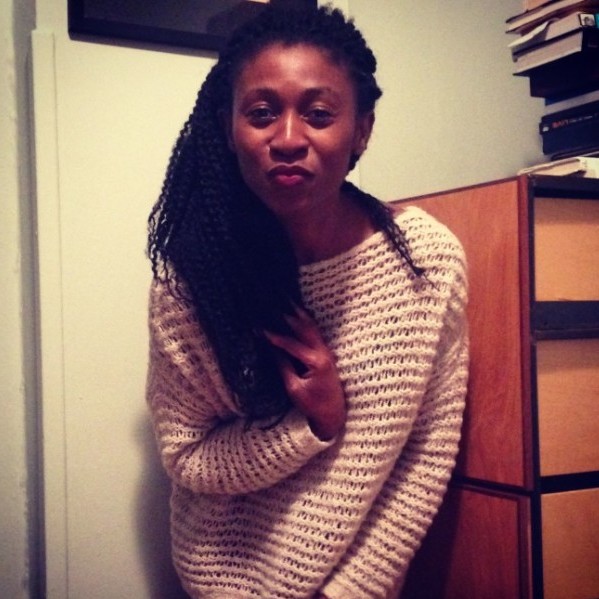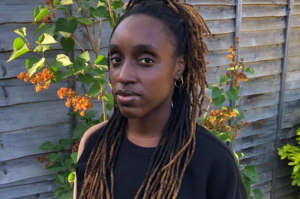Dear Ms. Paper,
I got into a bad argument in class today. I’m so angry it’s a bit hard to type this right now. My literature professor said Achebe invented African literature. I didn’t think I heard right, so I raised my hand up and asked, “Excuse me sir, which Achebe do you have in mind? Is it the Achebe who was not not even in his mother’s womb when Islamic poets were writing epics in Swahili or are you referring to the Achebe whose debut novel came out after Cameroon’s Mongo Beti had already written three novels?” Everyone sided with the professor and accused me of tainting the legacy of a great man. I’m trying really hard to understand the logic behind claims that Achebe invented or is the father of African literature. The more I think of it the more absurd it seems. Hundred of years of writing had already been recorded on the continent before Achebe rolled up in 1958 with Things Fall Apart. Am I missing something here? Achebe wrote mainly fiction—a specific type of fiction, for that matter. How can a man who wrote novels be credited for inventing the literature of an entire continent?
***
Dear Angry Historian,
Take a deep breath. It’s okay. No need to lose your head over the silly, old question of Achebe’s literary fatherhood. You also didn’t have to go off on your professor. It’s not his fault that people think Achebe is the inventor of African literature. Blame Simon Gikandi, not your professor! In the late 1991, Gikandi, a Kenyan literary scholar who now teaches at Princeton University, wrote this book on Achebe, in which he said that Achebe invented African literature.
If it makes you feel better, your irritation places you in very good company. In the weeks following Achebe’s death, here is what Soyinka has to say about the claim that Achebe is the “father of African literature:”
Chinua himself repudiated such a tag—he did study literature after all, bagged a degree in the subject…Those who seriously believe or promote this must be asked: have you the sheerest acquaintance with the literatures of other African nations, in both indigenous and adopted colonial languages? What must the francophone, lusophone, Zulu, Xhosa, Ewe literary scholars and consumers think of those who persist in such a historic absurdity?
As convincing as this sounds, I would advise you to hold off on joining Soyinka in writing off the idea of Achebe as the “father” or inventor of African literature until you consider all the facts.
The first mistake that Soyinka makes and that you are making is taking the idea of “the father” or “the inventor” way too literally. Achebe is the father of African literature only in a metaphorical sense. No one is saying that Achebe was physically present when African literature came into being—like he was some kind of god who stood before the expanse of Africa’s literary nothingness and said “let there be African literature, and then there was African literature.”
Because you’re fixated on this literal interpretation of Achebe’s role as father, you miss a very key distinction.
Gikandi says that Achebe invented African literature. He did not say Achebe invented African writing. There is a huge difference between the two. There have been hundreds and hundreds of years of African writing circulating in the world before Achebe came on the scene. To claim otherwise would be pure stupidity. What people like Gikandi are simply saying is that it was not until Achebe and his generation came along that we could think of this vast body of African writing as literary works.
Before Achebe, if you were black and you were African, the world most likely did not see your work as literary. They would evaluate your work as folklore, myth, or things that should interest an anthropologist, but not literature. This affected the way African writing was circulated globally. Instead of African fiction to be reviewed by the New York Times or shelved alongside Franz Kafka and Virginia Woolf, it was published by religious presses and reviewed in anthropological journals.
Things began to change in a big way after the global success of Things Fall Apart. It took a novel like Things Fall Apart for the global literary market, readership, and literary institution to see African writers the same way they saw Virginia Woolf or James Joyce or William Shakespeare—people writing things called literature and not myth, or folklore or historical documents or anthropological texts.
I will grant you this. It is confusing when people say Achebe invented African literature because most people are going to hear “literature” and confuse it with “writing.” But literature is not just writing, right? It is a unique way of looking at a body of writing. It is a way of situating a text in a literary tradition and valuing it for its aesthetic attributes. I suppose the more accurate way of putting it would be to say that Achebe invented a new way of seeing African writing as literary.
Next time you year someone say that Achebe is the father of African literature or that he invented African literature, think of it as a branding issue. He rebranded African writing as literary texts. African fiction and poetry came to be understood in relation to a global literary tradition and not as a set of specialized documents that stodgy professors studied in history and anthropology departments.
No one is saying that there wasn’t African writing before Achebe, but simply that the publication of Things Fall Apart marks the beginning of a global conversation around African writing as literary texts.
Did Achebe invent African literature? I would rather say that Achebe helped reinvent African writing as literature.
***************
#DearMsPaper is a fictional agony-aunt series that parodies readers, critics, and writers in the African literary scene. If you have specific questions you’d like me to address, send to [email protected]
To read more #DearMsPaper posts: click here.










Nonye May 13, 2016 09:22
Life would have been much easier if the professor had clarified his statement, replacing "inventor" with "re-nventor". In a class where you teach young minds, it's important to clarify fact and not only emphasize praise. The child of a lot of praise for Achebe's invaluable work is what has brought about repetition of the statement "... invented African literature". It's a class, so what is wrong with making sure that your students left at the end of the day understanding that literature even includes folklore, poetry, dance drama, etc. that has existed in many many cultures, many many years before Achebe? Achebe was - is - amazing. But didn't invent literature. It's just like how annoying it is when you really think of the statement "Columbus discovered America". America that people had lived and died in since morning?